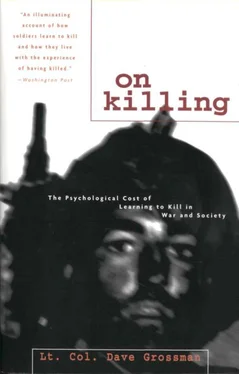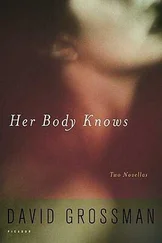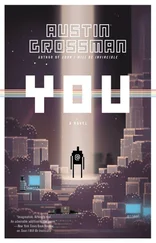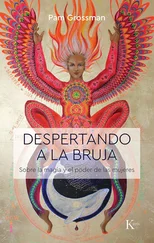The soldiers whose narratives form the heart and soul of this work understood the essence of war. They are heroes as great as any found in the Iliad, yet the words that you will read here, their own words, destroy the myth of warriors and war as heroic. The soldier understands that there are times when all others have failed, and that then he must “pay the butcher’s bill” and fight, suffer, and die to undo the errors of the politicians and to fulfill the “will of the people.”
“The soldier above all other people,” said MacArthur, “prays for peace, for they must suffer and bear the deepest wounds and scars of war.” There is wisdom in the words of these soldiers. There is wisdom in these tales of a “handful of ashes, a mouthful of mould. Of the maimed, of the halt and the blind in the rain and the cold.” There is wisdom here, and we would do well to listen.
Just as I do not wish to condemn those who have killed in lawful combat, nor do I wish to judge the many soldiers who chose not to kill. There are many such soldiers; indeed I will provide evidence that in many historical circumstances these nonfirers represented the majority of those on the firing line. As a soldier who may have stood beside them I cannot help but be dismayed at their failure to support their cause, their nation, and their fellows; but as a human being who has understood some of the burden that they have borne, and the sacrifice that they have made, I cannot help but be proud of them and the noble characteristic that they represent in our species.
The subject of killing makes most healthy people uneasy, and some of the specific subjects and areas to be addressed here will be repulsive and offensive. They are things that we would rather turn away from, but Carl von Clausewitz warned that “it is to no purpose, it is even against one’s better interest, to turn away from the consideration of the affair because the horror of its elements excites repugnance.” Bruno Bettelheim, a survivor of the Nazi death camps, argues that the root of our failure to deal with violence lies in our refusal to face up to it. We deny our fascination with the “dark beauty of violence,” and we condemn aggression and repress it rather than look at it squarely and try to understand and control it.
And, finally, if in my focus on the pain of the killers I do not sufficiently address the suffering of their victims, let me apologize now. “The guy pulling the trigger,” wrote Allen Cole and Chris Bunch, “never suffers as much as the person on the receiving end.” It is the existence of the victim’s pain and loss, echoing forever in the soul of the killer, that is at the heart of his pain.
Leo Frankowski tells us that “cultures all develop blind spots, things that they don’t even think about because they know the truth about them.” The veterans quoted in this study have had their faces rubbed in this cultural blind spot. We are truly, as one veteran put it to me, “virgins studying sex,” but they can teach us what they have learned at such a dear price. My objective is to understand the psychological nature of killing in combat and to probe the emotional wounds and scars of those men who answered their nation’s call and meted out death — or chose to pay the price for not doing so.
Now more than ever we must overcome our revulsion and understand, as we have never understood before, why it is that men fight and kill. And equally important, why it is that they will not. Only on the basis of understanding this ultimate, destructive aspect of human behavior can we hope to influence it in such a way as to ensure the survival of our civilization. [2] There is not even a name for the specific study of killing. “Necrology” would be the study of the dead, and “homicidology” would have undesired connotations of murder. Perhaps we should consider coining the simple and precise term “killology” for this study, just as “suicidology” and “sexology” are terms that have been recently created for the legitimate study of these precise fields.
SECTION I
Killing and the Existence of Resistance:
A World of Virgins Studying Sex
It is therefore reasonable to believe that the average and healthy individual — the man who can endure the mental and physical stresses of combat — still has such an inner and usually unrealized resistance towards killing a fellow man that he will not of his own volition take life if it is possible to turn away from that responsibility…. At the vital point he becomes a conscientious objector.
— S. L. A. Marshall
Men Against Fire
Then I cautiously raised the upper half of my body into the tunnel until I was lying flat on my stomach. When I felt comfortable, I placed my Smith Wesson .38-caliber snub-nose (sent to me by my father for tunnel work) beside the flashlight and switched on the light, illuminating the tunnel.
There, not more than 15 feet away, sat a Viet Cong eating a handful of rice from a pouch on his lap. We looked at each other for what seemed to be an eternity, but in fact was probably only a few seconds.
Maybe it was the surprise of actually finding someone else there, or maybe it was just the absolute innocence of the situation, but neither one of us reacted.
After a moment, he put his pouch of rice on the floor of the tunnel beside him, turned his back to me and slowly started crawling away. I, in turn, switched off my flashlight, before slipping back into the lower tunnel and making my way back to the entrance. About 20 minutes later, we received word that another squad had killed a VC emerging from a tunnel 500 meters away.
I never doubted who that VC was. To this day, I firmly believe that grunt and I could have ended the war sooner over a beer in Saigon than Henry Kissinger ever could by attending the peace talks.
— Michael Kathman “Triangle Tunnel Rat”
Our first step in the study of killing is to understand the existence, extent, and nature of the average human being’s resistance to killing his fellow human. In this section we will attempt to do that.
When I started interviewing combat veterans as a part of this study, I discussed some of the psychological theories concerning the trauma of combat with one crusty old sergeant. He laughed scornfully and said, “Those bastards don’t know anything about it. They’re like a world of virgins studying sex, and they got nothing to go on but porno movies. And it is just like sex, ’cause the people who really do it just don’t talk about it.”
In a way, the study of killing in combat is very much like the study of sex. Killing is a private, intimate occurrence of tremendous intensity, in which the destructive act becomes psychologically very much like the procreative act. For those who have never experienced it, the depiction of battle that Hollywood has given us, and the cultural mythology that Hollywood is based upon, appear to be about as useful in understanding killing as pornographic movies would be in trying to understand the intimacy of a sexual relationship. A virgin observer might get the mechanics of sex right by watching an X-rated movie, but he or she could never hope to understand the intimacy and intensity of the procreative experience.
As a society we are as fascinated by killing as we are by sex — possibly more so, since we are somewhat jaded by sex and have a fairly broad base of individual experience in this area. Many children, upon seeing that I am a decorated soldier, immediately ask “Have you ever killed anyone?” or “How many people have you killed?”
Where does this curiosity come from? Robert Heinlein once wrote that fulfillment in life involved “loving a good woman and killing a bad man.” If there is such a strong interest in killing in our society, and if it equates in many minds to an act of manhood equivalent to sex, then why hasn’t the destructive act been as specifically and systematically studied as the procreative act?
Читать дальше







